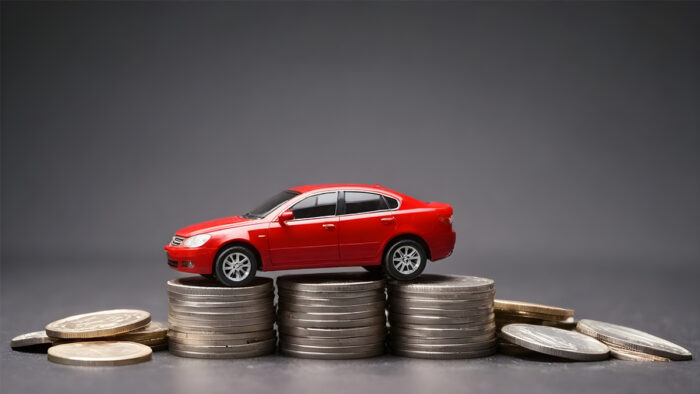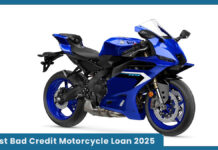A private party auto loan enables individuals to secure funds for purchasing a vehicle directly from an individual seller rather than from a car dealership.

This type of loan is sought for various reasons, such as when the desired vehicle is exclusively offered by a private seller, when dealership inventories do not align with one’s budget constraints, or when purchasing the same car from a private party proves to be more cost-effective compared to buying from a dealer.
Choosing a private party auto loan opens up opportunities to access unique vehicle options, cater to specific budget limitations that traditional dealerships may not meet, and potentially save money by acquiring a car you desire at a lower cost through private transactions instead of dealership purchases.
How a Private Party Auto Loan Works
Similar to conventional auto financing arrangements, a private party auto loan operates on the premise of using the purchased vehicle as collateral to secure the loan. Secured loans typically come with lower interest rates compared to unsecured loans.
However, it is important to note that in the event of payment delinquency or default, the lender retains the right to repossess the collateral, which in this case is the vehicle being financed.
Lenders typically provide repayment terms ranging from 12 to 84 months for private party auto loans. The duration of the loan term directly impacts the total interest paid over time; opting for a longer term may result in higher overall interest costs but can lead to more manageable monthly payments for the borrower.
It is essential for borrowers to carefully consider their financial circumstances and repayment capabilities when selecting the loan term that best aligns with their needs and budget constraints.
How to Qualify for a Private Party Auto Loan
Qualifying for a private party auto loan mirrors the process for securing a dealership auto loan. Essential requirements include a favorable credit history and a sufficient income to meet monthly payment obligations.
While a down payment may be necessary, many lenders offer 100% financing options for used auto loans, with some even extending financing beyond the car’s purchase price to assist with covering additional expenses like taxes, title fees, and licensing costs.
In the fourth quarter of 2020, the average credit score for individuals obtaining a used car with an auto loan stood at 671, as reported by Experian. Typically, individuals with credit scores below 500 may face challenges in qualifying for an auto loan, although there are some lenders that cater to individuals with poor credit histories.
How Can I Locate a Private Party Auto Loan?
Finding a private party auto loan differs from obtaining financing through a dealership, where preferred lenders like Honda Financial Services, Toyota Financial Services, or Ford Credit are commonly recommended. Alternatively, buyers can secure their own financing from banks, credit unions, or online lenders, potentially leading to cost savings.
Private party auto loans are available through banks, credit unions, and online lenders, although they may be less readily accessible compared to loans for dealership purchases. To initiate your search, consider financial institutions such as PNC, Bank of America, Regions Bank, Members 1st, Credit Union West, Logix, First Credit Union, LightStream, and MyAutoLoan.com, among others.
Community banks, despite having limited online visibility, can also be viable options, so exploring local establishments and making inquiries is advisable. Additionally, it is beneficial to inquire with banks or credit unions with which you already have a relationship.
Securing a private party auto loan may prove challenging for vehicles that are too old, have high mileage, lack sufficient value, are commercial vehicles, or possess salvage titles. In such cases, a personal loan could serve as an alternative financing option. However, it is important to note that personal loans are typically unsecured, leading to higher interest rates compared to secured auto loans.
Alternatives to Private Auto Loans
In instances where approval for a private party auto loan is not granted or suitable financing cannot be secured for the desired vehicle, there are alternative avenues to explore.
• Personal loans
A viable substitute for a private party auto loan is a personal loan. Unlike secured auto loans, unsecured personal loans assess loan eligibility based on income and credit score, without the vehicle influencing the approval process.
This option may be preferable if the vehicle is older, has high mileage, carries a salvage title, or if a suitable private party loan is unavailable. However, it is important to note that personal loans typically come with higher interest rates compared to private party auto loans.
• Dealership loans
If private party loan applications have been unsuccessful, considering dealership financing could be beneficial. Dealerships often provide in-house financing options, simplifying the loan process.
While dealership prices may be higher than those of private sellers, securing a loan through a dealer can be more straightforward. Additionally, individuals who were previously declined a private loan may still qualify for a used auto loan through a dealership.
• Cash purchase
For those not under time constraints or still searching for the ideal private sale, accumulating savings for a cash purchase is a prudent strategy.
Increasing the upfront payment reduces the overall expenditure on the vehicle. Opting for older, more affordable models that may not meet traditional loan criteria eliminates the need to take on additional risk by financing the purchase with a personal loan.
How to Apply for a Private Party Auto Loan
When considering applying for a private party auto loan, key factors to evaluate include your budget and the availability of used cars in your local area. The application process for securing this type of loan closely resembles that of obtaining financing for a new or used car from a dealership.
• Establish a budget
Begin by assessing your credit history and score to estimate potential interest rates and loan amounts. Understanding your credit standing will aid in calculating monthly payments, determining out-of-pocket expenses, and identifying the required financing amount.
• Select a vehicle
Refer to reliable sources like Edmunds and Kelley Blue Book for cost-to-own estimates to guide you towards a dependable vehicle choice.
While national websites can assist in finding the right car, consider the practicality of traveling for test drives and purchases, especially when dealing with out-of-state transactions. Familiarize yourself with your state’s regulations on title transfers before finalizing a purchase from a private seller.
• Compare lenders
Research and compare prospective lenders offering private party auto loans, focusing on interest rates, loan terms, monthly payments, fees, and penalties. Given that private party loans often come with higher costs, seek preapproval before shopping to determine your spending limits and expected monthly payments accurately.
• Loan application
When ready to purchase a vehicle from a private seller, prepare to furnish essential personal information to the lender, including your full name, birthdate, address, Social Security number, contact details, employment status, income details, and existing debt obligations such as mortgages.
Additionally, have pertinent vehicle information ready, such as make, model, year, mileage, VIN number, bill of sale outlining the purchase agreement, vehicle registration copy, vehicle title copy, and a written payoff quote from the seller’s lender if applicable.
• Finalize the transaction
Upon selecting a vehicle and signing the loan agreement, the lender will issue a check either directly to you or the seller. If opting for direct deposit, ensure both parties are aware that fund transfers may take several days to process.
Your lender will provide payment schedules and an amortization plan detailing interest and principal allocations each month. Consider setting up autopay for timely payments without manual intervention. Regularly monitor payment transactions to ensure smooth processing each month.
FAQs
What interest rates are available for private party auto loans?
Interest rates for private party auto loans vary based on individual credit situations. Providers like AmONE offer rates starting at 1.65% for new purchases, 1.75% for refinancing and used purchases, and 2.19% for refinancing.
What determines the interest rate I will receive for a private party auto loan?
Factors such as the type of loan, credit situation, vehicle type, loan term, and the approving lender determine the interest rate.
What terms can I expect for a private party auto loan?
Most private party auto loan terms range from 48 to 72 months, depending on credit and vehicle specifics.
How long does it take to apply for a private party auto loan?
The application process for a private party auto loan typically takes a few moments to complete online, with approval usually within one business day.



